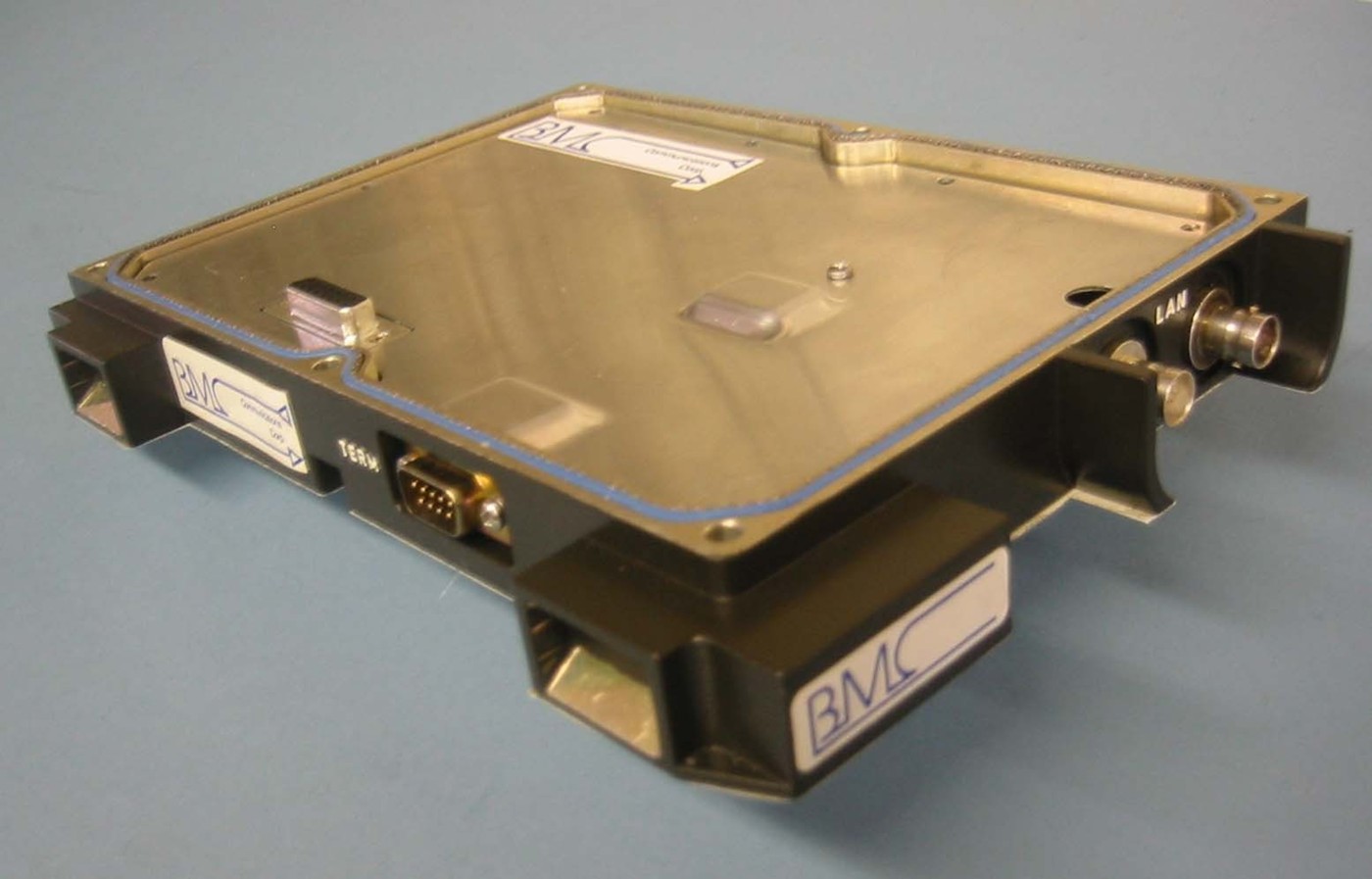4
MIL-STD-1553/1760 REPEATER/SPLITTER
Dual Redundant Channels
MIL-STD-1553
MIL-STD-1760
IP available
REPEATER BOARD SPECS.
- Field Programmable CPU
- Transformer & direct coupling
- Up to TWO dual redundant channels
- Humidity up to 95%
- Single channel board dimension: 4”x3”
- Voltage Input 5 – VDC
- Low Power
- 0.5W p/channel (50% duty cycle)
- 20 mA Standby
Temperature -40°C to +85°C
1553 Bus Terminators
1553 REPEATER Features
- Automatic signal input recognition
- .Intelligent signal reconstruction
- Typical delay time 500 nsec.
- RF protection
- Lock Connectors
- TWO dual redundant channels
- Voltage Input 5 - VDC
Optional 28 VDC Voltage Input
BMC 1553 REPEATER is an intelligent device with a fast and low power RISC processor capable of reconstructing and boosting bi-directional signals on 1553 coaxial cables. The repeater is available as either single or dual 1553 channel. Alternately, the unit can be configured as a splitter. Note that the information coming from a single input can be retransmitted to up to three different output cables. These configurations are maintained inside the processor and are field programmable. The Repeater board includes RF protections
The BMC repeater board is an efficient solution for long connections between devices. The unit automatically recognizes incoming information and retransmits without any delay. The repeater has up to two dual redundant channels for full support to MIL-STD-1553 requirements.
BMC 1553 \ 1760 Splitter
Using this format, the repeater transmits to a common “input” and data is retransmitted through up to three “outputs”. The system constantly tracks signals coming from the three connectors. If the two “outputs” transmit data the first output cached by the intelligent processor is going to be retransmitted to the common “input”.
Options
The BMC Repeater/Splitter is available with the following options:
1- Single or Dual repeater- single channel or dual (A & B).
2- Bus resistor terminator.
3- Repeaters with or without a box.
4- Repeaters with or without a power supply.
5- Embedded Bus Analyzer through standard RS232 serial port.
6- Customize PCB shape to meet customer requirements.
7- Customize box to meet customer requirements

Environmental specs
Temperature (Operating and Non-Operating)
Low Temperature MIL-STD-810E,502.3
High Temperature MIL-STD-810E,501.3,
Procedure 1
Humidity (Operating and Non-Operating)-
Method 507.3, Procedure III of
MIL-STD-810E, at a relative
humidity of more than 90%.
Vibration Method 514.4 of MIL-STD-810E,
& Shock Procedure I Table 514.4-AII.
Bounce Loose Cargo - MIL-STD-810E, Method 514.4, Procedure III.
Shock Crash Safety MIL-STD-810E, Method
514, Procedure V. The crash
conditions are as follows:
Pulse shape: half sin.
Pulse duration: 100msec ± 10%.
nx= +/-20g
ny= +/-16g
nz= +20g/-10g
Altitude MIL-STD-810E,Method 500.3
Procedures I and II, at 18,000 feet
for operation and 40,000 feet for
transportation. The Pressure change
rate 3000 feet/min
Solar Radiation MIL-STD-810E,
Method 505.3 Procedure I
for 24 hours
Immersion MIL-STD-810E, Method 512.3,
Procedure I.
Rain- MIL-STD-810E, Method 503,
Procedure II.
Salt Fog -- MIL-STD-810E, Method 509.3,
Procedure I.
Sand and Dust -MIL-STD-810E,
Method 510.3, Procedure I.
Gunfire test for helicopter installation
MIL-STD-810E , method 519.4,
Procedure I.
Accelerations MIL-STD-810E, Method
513.4, Procedure II.
nx = +/- 1 g
ny = +/- 1 g
nz = + 3.5 g /- 1 g
EMI/EMC MIL-STD-461D Army Ground
Tel 631-256-5903 x 30 • Fax 516-997-2129
email: REPEATER1553@bmccorp.com

